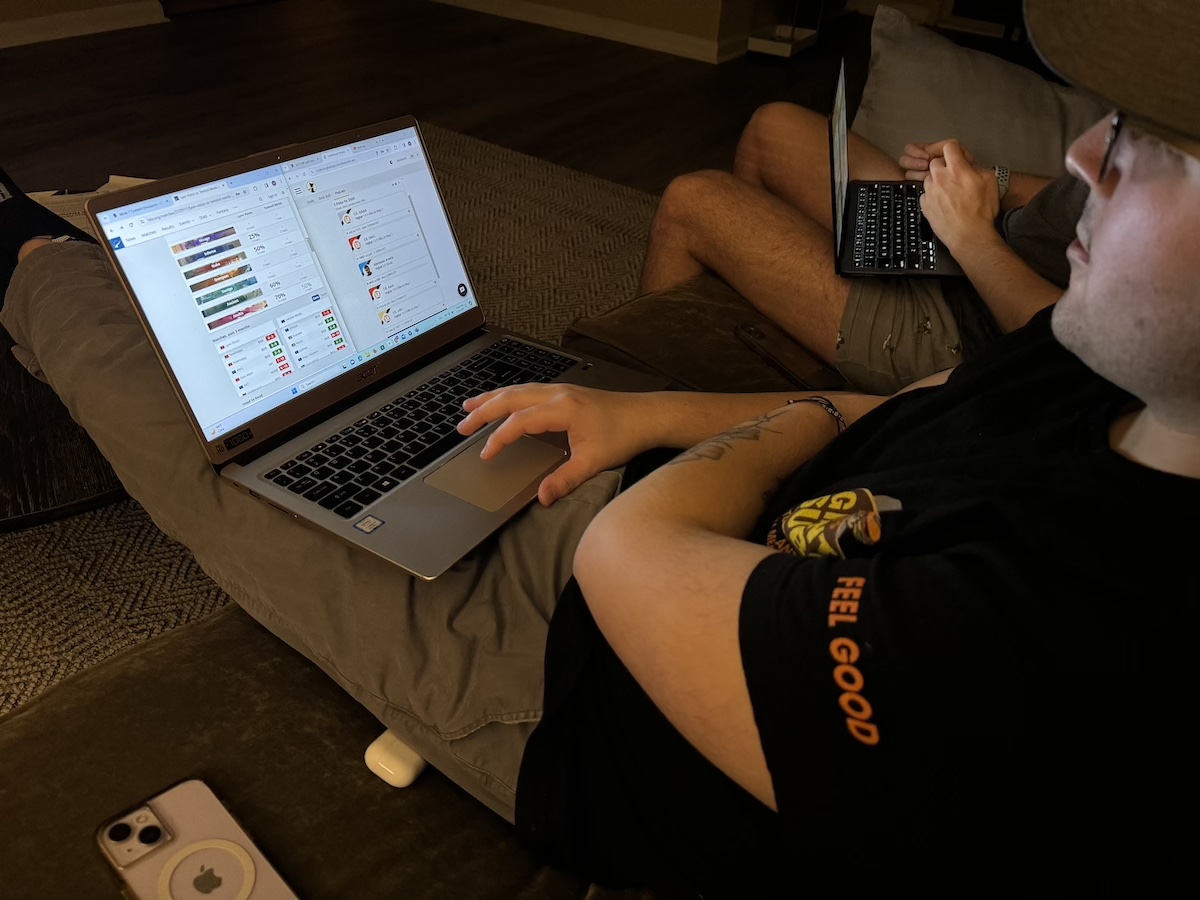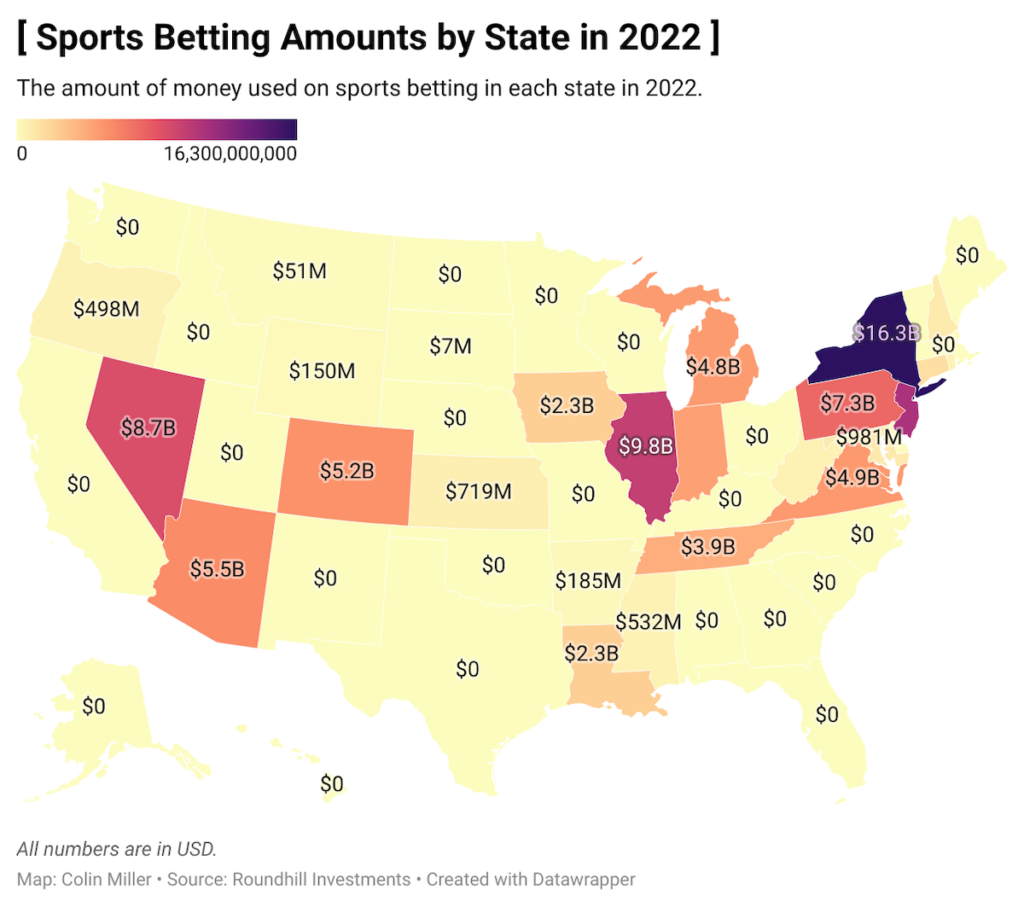Michael Sheridan was drenched in sweat even though it was 50 degrees outside. There was an empty couch behind him, but he placed himself about 5 feet from his television.
On the screen, Iowa women’s basketball was facing off against Illinois. Sheridan wasn’t a fan of either team, but he had a special interest in this game. If Iowa’s Caitlin Clark scored just one more basket, he’d be $75 richer.
Why It’s Newsworthy: The state of Georgia is inching towards legalizing sports gambling as college students’ participation spikes and concern about gambling addiction rises.Sheridan, 23, a 2023 University of Georgia graduate, has used fantasy sports app PrizePicks since he started college. On the app, users place parlays, a type of wager where multiple bets are combined into one to exponentially increase a user’s winnings. If all of the bets are right, the user makes a profit, but if just one bet misses, the user loses their entire wager.
Sheridan looks at gambling as a hobby, a way to make games more interesting to watch that he wouldn’t have bothered to pay attention to otherwise. But, despite his enjoyment of it, he doesn’t recommend it to the average sports gambling fan.
“If you enjoy watching sports and you don’t have the urge to gamble now, there’s no need to do it,” Sheridan said. “It’s just something extra that you can do to have more fun and make things more exciting. I definitely think sports betting is not a good thing, but it is how it is.”
Though sports gambling is not currently legal in the state of Georgia, that could change soon. On Feb. 22, the Georgia Senate approved an amendment calling for voters to decide whether both sports and casino gambling will be legalized in the state.
All 38 states that have legalized sports gambling saw a minimum of $50 million in bets placed in 2022 alone. In 2023, the U.S. gained $10.2 billion in revenue from sports gambling, according to the American Gaming Association’s Commercial Gaming Revenue Tracker, a 44.5% jump from 2022.
According to Georgia Senate Resolution 538, half of the tax revenue produced by sports betting and casinos will be used to improve transportation, while another 20% will support pre-kindergarten and child-care programs.
UGA kinesthesiology professor David Schmidt worked in the sports industry for multiple decades, and spends a lot of time with passionate sports fans in the classes he teaches. He sees the advantages to legalizing gambling.
“I do [support gambling legalization]. I think every other state that has done it has seen huge revenue on the tax front,” said Schmidt. “I think there should be better education around sport gambling. I see it as an entertainment aspect, where a lot of people that get into it see it as a money making aspect.”
Although the legislation would do a lot for state revenue, some experts are concerned that legalizing sports betting could develop bad habits in college students.
According to research done by Donald Nowak and Ariel Aloe in the Journal of Gambling Studies in 2013, the estimated percentage of possible gambling addicts among the 13,000 college students they surveyed was 10.23%, more than double the rate reported in research done 14 years earlier.
“I think [sports gambling’s] gonna be a staple,” Schmidt said. “I think now that they can fully lean into it more, you know ESPNBet and everything else has been a big part of it. You see it across the board on the ESPN website now. You go to the scores, and you see the spread for every game.”
“It’s up to the individual’s choice with what they want to spend their money on and what they want to do. Like anything else, there’s risk and reward,” said Sheridan.
But Sheridan doesn’t worry about addiction. As the buzzer of the Iowa game hit zero, Sheridan celebrated a successful bet. However, despite profiting on the night, he wasn’t satisfied. He immediately grabbed his computer to check the betting lines for tomorrow night’s games, looking to replicate his success again.
Colin Miller is a third year student majoring in journalism.










Show Comments (0)